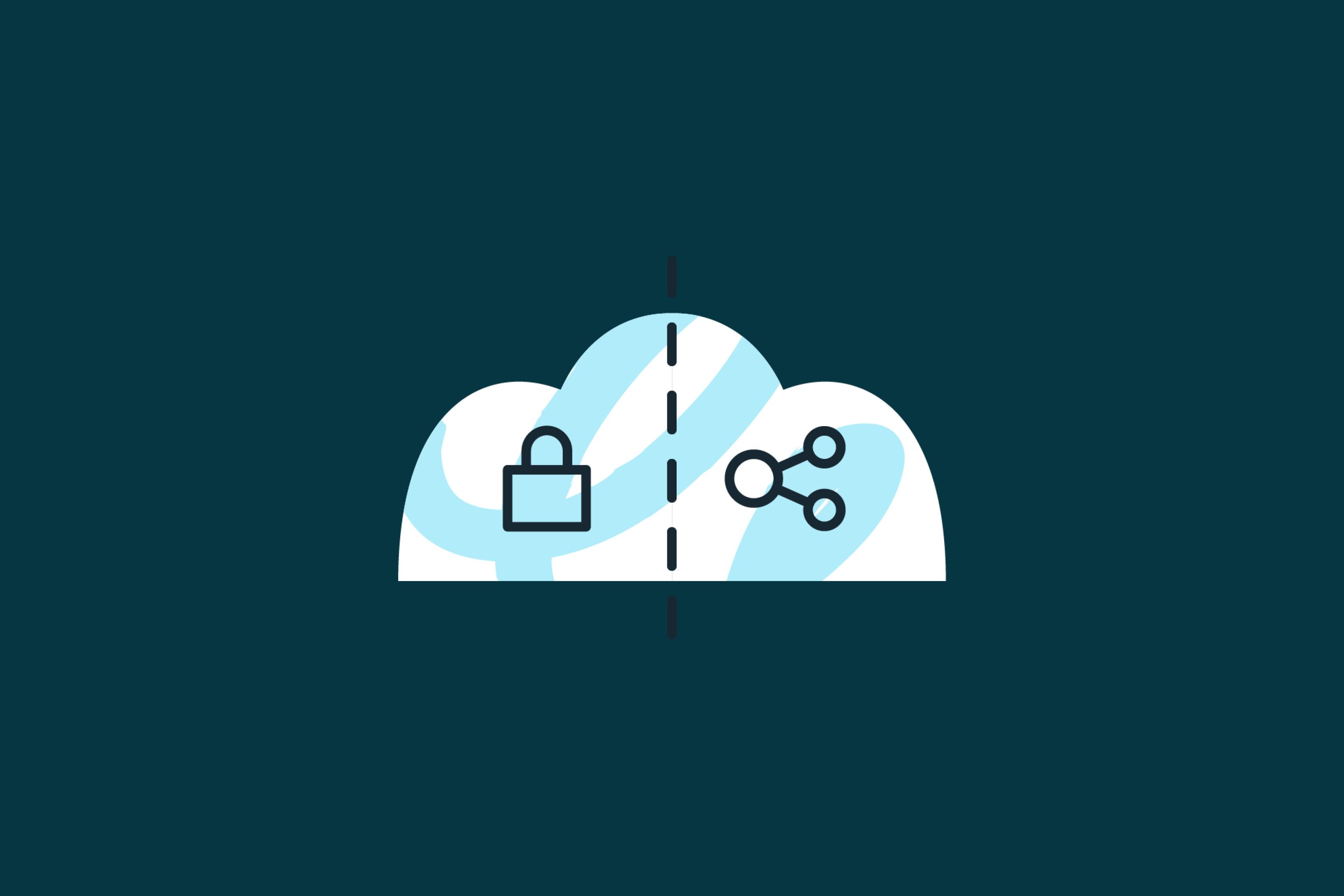What is the hybrid cloud?
author
Haylee Fortune
published
Nov 15, 2023
categories
Cloud Basics
read time
3 mins

Public, private, hybrid, cumulonimbus - there are so many types of cloud. What do they all mean? The latest entry in our cloud explainer series makes the hybrid cloud make sense.
Shortcuts:
1. So what is ‘the cloud’?
2. What is the private cloud?
3. What is the public cloud?
4. Private cloud vs public cloud: which is better?
5. The hybrid cloud
- 1. So what is ‘the cloud’?
- 2. What is the private cloud?
- 3. What is the public cloud?
- 4. Private cloud vs public cloud: which is better?
- 5. The hybrid cloud
share this post
Cloud-based computing is the on-demand, access-anywhere way of the future. Those chunky filing cabinets can go on Facebook marketplace and off to the homes of businesses who aren’t up with the play - but you are.
Here’s the lowdown on the cloud so you can make a game plan for transitioning your business into cyberspace for good.
So what is ‘the cloud’?
Simply put, the cloud is the internet. It's all of the things you can access remotely such as software, emails and files. When something is in the cloud, it's stored on internet servers instead of your computer's hard drive or as a physical copy filed into no man’s land.
Think of the cloud as not a physical entity, but a vast network of remote servers around the globe, linked together to operate as a single ecosystem. Sound daunting? Don’t worry, we’ve got you covered.
What is the private cloud?
It’s your house. You built it, you hold the key and control who comes in the door.
A private cloud is various computer services (software, programmes and the like) on the internet or via a private internal network that is only available to your organization.
If you’ve already got system administrators on-site, the first stage might be an on-premise private cloud, which allows your business or company to host the cloud environment internally at your chosen location.
A hosted private cloud by a third-party vendor allows a flexible infrastructure without the need to invest in hardware, software or even more staff. Examples? Check out Amazon VPC or IBM.
Put simply, the use of a private cloud is a lot cheaper than replacing hardware and it allows everyone to work within the same ecosystem. If business needs to happen on-site at your location, a private cloud could be your best option for digital transformation.
Just like you can do what you like with a house when you own it, a private cloud gives users optimal control to meet their needs. When you’re renting, it’s a different story, as the home ultimately doesn’t belong to you (enter: public cloud).
What is the public cloud?
A public cloud is a hosted cloud that rents out space to businesses like yours. Think of it like renting out a room in your offices. If sharing documents or resources with clients or customers is a way of life at your place, it could be a good fit.
Not only is a public cloud less costly to get set up, but it’s also easy to scale and enjoy the benefits of its owner company’s expertise and resources (trust Google, not Randy the IT guy). Examples we rate include Amazon Web Services or the Google Cloud Platform - if you're already using Google Workspace, this is a fantastic option.
Private cloud vs public cloud: which is better?
Go private? You’ll set the foundations, be secure, compliant and keep things under lock and key. Plus, you can customize your experience and make it unique.
Go public? Access the best of the best, allow yourself to scale and do so for less investment.
The good news is that you don’t have to choose. There’s a third option (hybrid cloud, please step forward).
The hybrid cloud
Just like it sounds, the hybrid cloud is a mix of public and private.
Hybrid cloud refers to a mixed computing, storage, and services environment made up of on-premises infrastructure, private cloud services, and a public cloud. It’s an all-in-one cloud experience.
Why add another into the mix, you ask? A hybrid cloud approach is suited for your business if you want to take advantage of the scale and security of a public cloud (like Google Cloud), while keeping your data on-premises to comply with data residency laws or for supporting computing needs closer to your customers or clients.
To summarize: the cloud is where you need to be to stay ahead
There are three types of cloud, each with varying benefits. To choose where to begin, start with your business or organization’s core needs – compliance? Security? Keeping costs down? Use this to weigh up which route to take and get on your way to digital transformation.
Either way, we suggest transitioning to the cloud sooner rather than later to streamline the way you work, save time and keeping everyone connected in cyberspace.
share this post